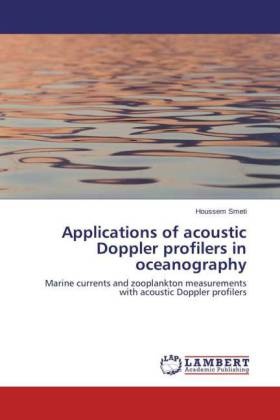Ulteriori informazioni
Two studies were conducted in the northwestern Atlantic ocean (Bermuda) and in the central Mediterranean Sea (Tunisia) based on the analysis of Acoustic Doppler Current Profilers (ADCP) time-series data. In the northwestern Sargasso Sea three oceanic eddies were studied to determine their influence on macrozooplankton abundance inferred from ADCP acoustic backscatter data. The passage of a cyclonic and an anticyclonic eddies induced an increase in epipelagic zooplankton abundance and the sinking of zooplankton-derived material to the deep ocean. We show that zooplankton distribution and vertical migration is affected by the lunar cycle with zooplankton migrating deeper in the water column during full moons. An ADCP was deployed for 70 days off the coast of Tunisia. The obtained time-series of currents was processed to separate the tidal current signal. The results showed that the tidal current was persistent throughout the time series. A principal component analysis showed that the prevailing direction of tidal current was North-East South-West, pointing to a potential passage of the Atlantic Tunisian Current near our deployment site and southward towards the Gulf of Gabes.
Info autore
Houssem Smeti is a PhD candidate at the Mediterranean Institute of Oceanography (France). His doctoral work include the application of mono- and multi-frequency acoustics to study marine currents and zooplankton dynamics in relation to physical forcing in the upper ocean off Bermuda in the Sargasso Sea and New Caledonia in the Coral Sea.

